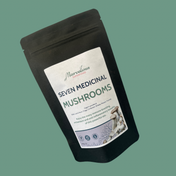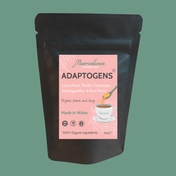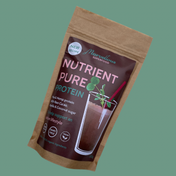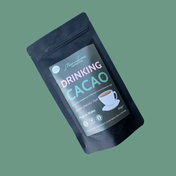WHAT ARE PREBIOTICS
In recent years, there has been growing interest in the role of gut health in overall well-being. The human gut harbors a complex ecosystem of microorganisms, collectively known as the gut microbiota, which plays a vital role in various aspects of health. One key factor in maintaining a healthy gut microbiota is the consumption of prebiotics. Prebiotics are non-digestible dietary fibers that selectively promote the growth and activity of beneficial bacteria in the gut. In this article, we will explore what prebiotics are, their sources, mechanisms of action, and potential health benefits, and conclude with their importance in maintaining optimal gut health.
What Are Prebiotics?
Prebiotics are a type of dietary fiber that cannot be digested by human enzymes in the upper gastrointestinal tract. Instead, they serve as a food source for beneficial bacteria in the colon. The most well-known and extensively studied prebiotics are fructooligosaccharides (FOS) and inulin, which are naturally present in various plant-based foods.
Sources of Prebiotics
Prebiotics can be found in a variety of foods, including fruits, vegetables, whole grains, and legumes. Some common food sources of prebiotics include bananas, onions, garlic, leeks, asparagus, artichokes, chicory root, whole wheat and cacao. These foods are rich in fibers that resist digestion and reach the colon intact, where they can be fermented by gut bacteria.
Mechanisms of Action
Once prebiotics reaches the colon, they are selectively utilized by beneficial bacteria such as bifidobacteria and lactobacilli. These bacteria possess enzymes that can break down prebiotics into short-chain fatty acids (SCFAs), namely acetate, propionate, and butyrate. SCFAs serve as an energy source for the cells lining the colon and play a crucial role in maintaining a healthy gut environment.
Furthermore, prebiotics have been shown to enhance the production of beneficial metabolites, modulate the gut microbiota composition, improve intestinal barrier function, and stimulate the immune system. These mechanisms collectively contribute to the overall health-promoting effects of prebiotics.
Potential Health Benefits
The consumption of prebiotics has been associated with several potential health benefits. Let's explore some of them in more detail:
Improved Digestive Health
Prebiotics help nourish beneficial bacteria in the gut, leading to a healthier balance of microorganisms. This can improve digestion, alleviate symptoms of gastrointestinal disorders such as irritable bowel syndrome (IBS), and promote regular bowel movements.
Enhanced Nutrient Absorption
By promoting healthy gut microbiota, prebiotics can enhance the absorption of important minerals, such as calcium and magnesium. This is particularly beneficial for maintaining strong bones and preventing conditions like osteoporosis.
Reduced Risk of Colorectal Cancer
Prebiotics play a role in maintaining a healthy colon environment. They can help reduce inflammation, support the integrity of the intestinal barrier, and inhibit the growth of potentially harmful bacteria. These factors collectively contribute to a reduced risk of colorectal cancer.
Modulated Immune System
The gut microbiota has a significant influence on immune function. Prebiotics can stimulate the growth of beneficial bacteria that contribute to a balanced immune response. They also promote the production of short-chain fatty acids (SCFAs), which have immune-modulating effects. This can help reduce inflammation, strengthen the immune system, and potentially prevent immune-related disorders.
Potential Mental Health Benefits
Emerging research suggests a connection between the gut microbiota and mental health. Prebiotics may positively influence the gut-brain axis, impacting mood, stress levels, and cognitive function. By promoting healthy gut microbiota, prebiotics have the potential to support mental well-being.
Weight Management
Prebiotics may play a role in weight management and obesity prevention. They can increase feelings of fullness, regulate appetite, and improve insulin sensitivity. These effects may contribute to healthy weight maintenance and metabolic health.
Cardiovascular Health
Some studies indicate that prebiotics may have a positive impact on cardiovascular health. They can help lower cholesterol levels, reduce blood pressure, and improve lipid metabolism. These factors are important for maintaining a healthy heart and reducing the risk of cardiovascular diseases.
What Is the Main Difference Between Prebiotics and Probiotics?
The main difference between prebiotics and probiotics lies in their nature and function within the body:
Nature
Prebiotics are non-digestible dietary fibers that serve as a food source for beneficial bacteria in the gut. They are typically found in certain plant-based foods. Examples of prebiotics include fructooligosaccharides (FOS) and inulin. On the other hand, probiotics are live microorganisms, such as bacteria or yeasts, that are beneficial to human health when consumed in adequate amounts. Probiotics can be found in fermented foods (e.g., yogurt, kefir) or taken as supplements.
Function
Prebiotics act as a substrate for the growth and activity of beneficial bacteria in the gut. They selectively promote the growth of these beneficial bacteria, such as bifidobacteria and lactobacilli. By doing so, prebiotics help to nourish and support healthy gut microbiota. In contrast, probiotics are the actual live microorganisms that are introduced into the body. They directly add beneficial bacteria to the gut microbiota, potentially influencing its composition and function.
Mechanism
Prebiotics work by providing a food source for beneficial bacteria, which can ferment the prebiotics into short-chain fatty acids (SCFAs) in the colon. SCFAs provide energy to the cells lining the colon and have various health benefits. On the other hand, probiotics function by colonizing the gut and interacting with the existing gut microbiota. They can compete with harmful bacteria, produce antimicrobial substances, and modulate the immune system.
Administration
Prebiotics are naturally present in certain foods and can be consumed through a regular diet. They can be obtained from various plant-based sources, such as fruits, vegetables, whole grains, and legumes. Probiotics, on the other hand, are typically consumed through specific food products or supplements that contain live microorganisms.
Survivability
Prebiotics are not affected by factors like heat, cold, or processing, as they are non-living fibers. They are resistant to digestion and reach the colon intact. Probiotics, however, are living organisms and their survivability depends on various factors, such as storage conditions, shelf life, and resistance to stomach acid and bile salts. Some strains of probiotics may require specific storage conditions to maintain their viability.
Conclusion
Prebiotics are an essential component of a healthy diet, offering numerous benefits for gut health and overall well-being. By selectively promoting the growth of beneficial bacteria in the gut, prebiotics contributes to a balanced gut microbiota, improved digestion, enhanced nutrient absorption, strengthened immune function, and potentially even mental health. Including prebiotic-rich foods in our daily diet, such as fruits, vegetables, whole grains, and legumes, can help support a thriving gut microbiota and promote optimal health. So, let's make conscious choices to nourish our gut and prioritize the consumption of prebiotics for a healthier future.
Ksenia Sobchak
Cosmetologist/Dermatologist, Clinical Nutritionist – Central Saint
Martins, BA (HONS)
Company: Glow Bar London
Address: 70 Mortimer St, London W1W 7RY
Website: https://glowbarldn.com/pages/k







